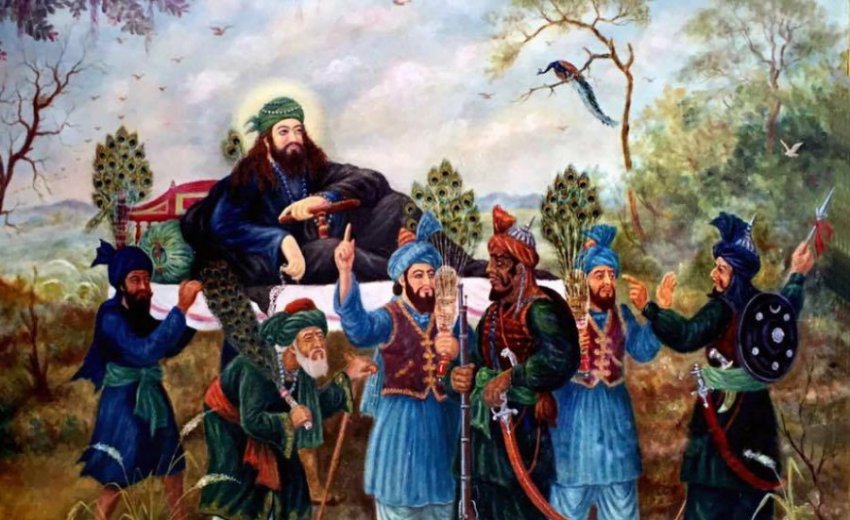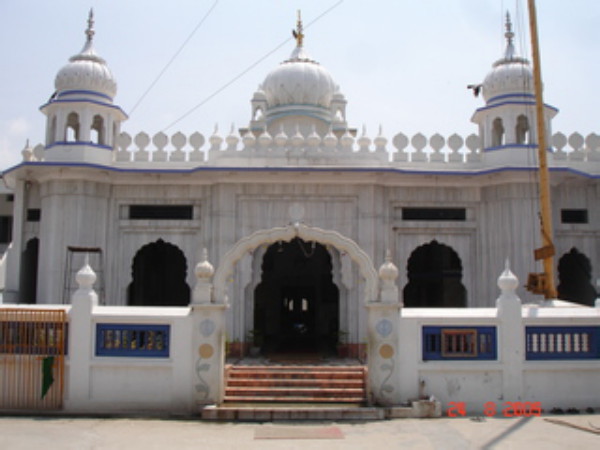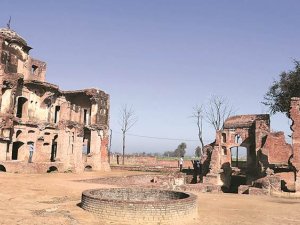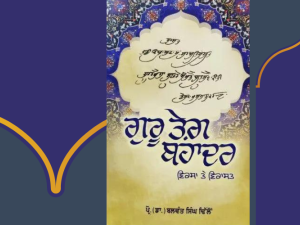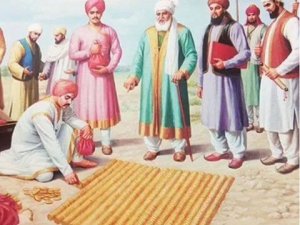“WHY DON’T YOU SEE BHAI GHANI & NABI KHAN IN THEM”
Almost a decade and half ago, while staying in the University Hall of Residence in Wolverhampton, I became friends with three Pakistani blokes, a Pathan from Peshawar and two Punjabi Muslims. These three guys were once friends with two Sikhs from East Punjab. They used to cook and eat together and were mates. But once differences arose and the Sikhs guys told them that ‘you’ have killed many of ‘us’ and this was not the first time this allegation had been made and fed up with this accusation about which they had no clue, the Pakistanis retorted yes, ‘we’ did it and what will you do about it? Needless to say, they never spoke after this incident.
The Pathan later lamented to me that in the moment of rage, he lost good friends. One of the Sikh guys came to me to warn about my three new friends. He told me about the incident and reminded me about the atrocities ‘they’ had committed on ‘us’. Obviously, ‘they’ meant Muslims and ‘us’ were Sikhs. He was referring to the persecution of the Sikhs by later Mughal rulers and Ahmed Shah Abdali (Durrani), the Afghan invader during the early and mid-eighteenth century. I instantly said, “Why don’t you see Bhai Ghani Khan and Bhai Nabi Khan in them”? The Sikh lad became quiet and left. He remained an acquaintance through my stay at the University.
Almost all Sikhs in East Punjab are aware of Bhai Ghani Khan and his brother Nabi Khan and timely assistance to their tenth and last Guru. Bhai (literal mean brother) is used as a mark of respect. The contemporary Sikh chronicles, Gurbilas Padshahi Dasvi, Mahima Prakash and Bansavalinama mentions these brothers.
In December 1705, Guru Gobind Singh had to leave Anandpur and lost all his four sons (& lot of other close Sikhs) to the Mughal & Hill Rajput army. Wazir Khan, the governor of Sirhind ordered the execution of Guru's younger sons aged 6 and 8 years respectively by bricking them up alive within a wall. The Mughal army kept on chasing the Guru.
During this period, a few Muslim devotees took a grave risk and assisted Guru Gobind Singh. If they had been caught helping the Guru by the authorities, they would have certainly been given the death penalty.
Ghani Khan and Nabi Khan, the two Pathan brothers were horse dealers in Machhiwara (now in Ludhiana district, East Punjab) were great admirers of Guru Gobind Singh. They had been to Anandpur (where the Guru resided) and sold many horses to him. When the brothers learned that the Guru was travelling in a lonely state after the battle and the Guru had come to Machhiwara, they at once came to meet him and offered their services.
The Pathan brothers provided the Guru with a blue coloured dress and carried him out of Machhiwara in a palanquin disguised as a Muslim divine. They declared him to be Uch da Peer, the holy man of Uch, an old seat of Muslim Sufis (West Punjab). The Guru gave Ghani Khan and Nabi Khan his blessings and a Hukamnama meant to be a letter of commendation which is reverently preserved by their descendants.
The descendants migrated to Pakistan in 1947. Their house in Machhiwara is now a Gurdwara known as Gurdwara Ghani Khan & Nabi Khan. One of the descendants, Yahood Ahmed Khan came to East Punjab in 2005 with the original copy of the Hukamnama.
The Gurdwara Bhai Ghani Khan and Nabi Khan in Macchiwara honours the home of these two brave brothers. The graves of the siblings are in the Gurdwara premises but in a separate building. Sikhs do not forget the people who were close to their Gurus. We can interpret history in several ways, but one should not be a prisoner of the past. It is within our power to ignore certain and highlight other parts of history.
________________________________
The writer of this blog is the author of the book, Afghan Hindus & Sikhs - A History of Thousand Years. He grew and studied in Punjab but now lives in UK.

